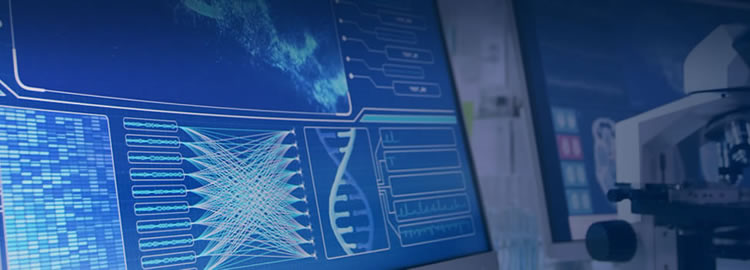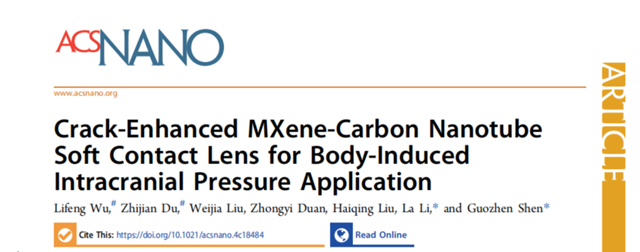

Updated: 2025-04-18

The Flexible Electronics Devices and Intelligent Manufacturing Research Institute of the School of Integrated Circuits and Electronics at Beijing Institute of Technology (BIT) has recently published an academic paper titled Crack-enhanced MXene-carbon nanotube soft contact lens for body-induced intracranial pressure application in ACS Nano.
The paper proposes a new strategy for non-invasive monitoring of intracranial pressure using an eye wearable sensor system. Animal experiments validated the application of this system in a posture-induced intracranial pressure variation model, elucidating the correlation between intracranial pressure and intraocular pressure.
Real-time monitoring of intracranial pressure is an indispensable physiological parameter in the monitoring of critical clinical conditions such as acute brain injury, and it is also an important guiding parameter for scientific training of professionals such as astronauts and high-level athletes. However, current clinical techniques for monitoring intracranial pressure rely on surgical craniotomy, which not only poses a high risk of infection but also causes secondary harm to patients. Therefore, there is an urgent need for a new non-invasive intracranial pressure monitoring technology to address these issues.
This article reports on a continuous non-invasive intracranial pressure monitoring method achieved through an in-situ intraocular pressure monitoring system. The system comprises a microcrack-enhanced intraocular pressure sensor, a flexible circuit data acquisition and analysis system, and a mobile display app.
The paper proposes a high-sensitivity intraocular pressure sensor system that can be worn in the eye, achieved through material preparation, structural design, and device integration. The feasibility of non-invasive intracranial pressure monitoring was validated through in-vivo animal experiments. This advancement provides a new technological means for monitoring critical clinical conditions, offers an effective scientific guidance for specialized training of professionals, and presents a novel research direction for studying the eye-brain relationship in clinical research.
Paper details: Wu, L.; Du, Z.; Liu, W.; Duan, Z.; Liu, H.; Li, L.; Shen, G. Crack-Enhanced MXene-Carbon Nanotube Soft Contact Lens for Body-Induced Intracranial Pressure Application. ACS Nano 2025, acsnano.4c18484














